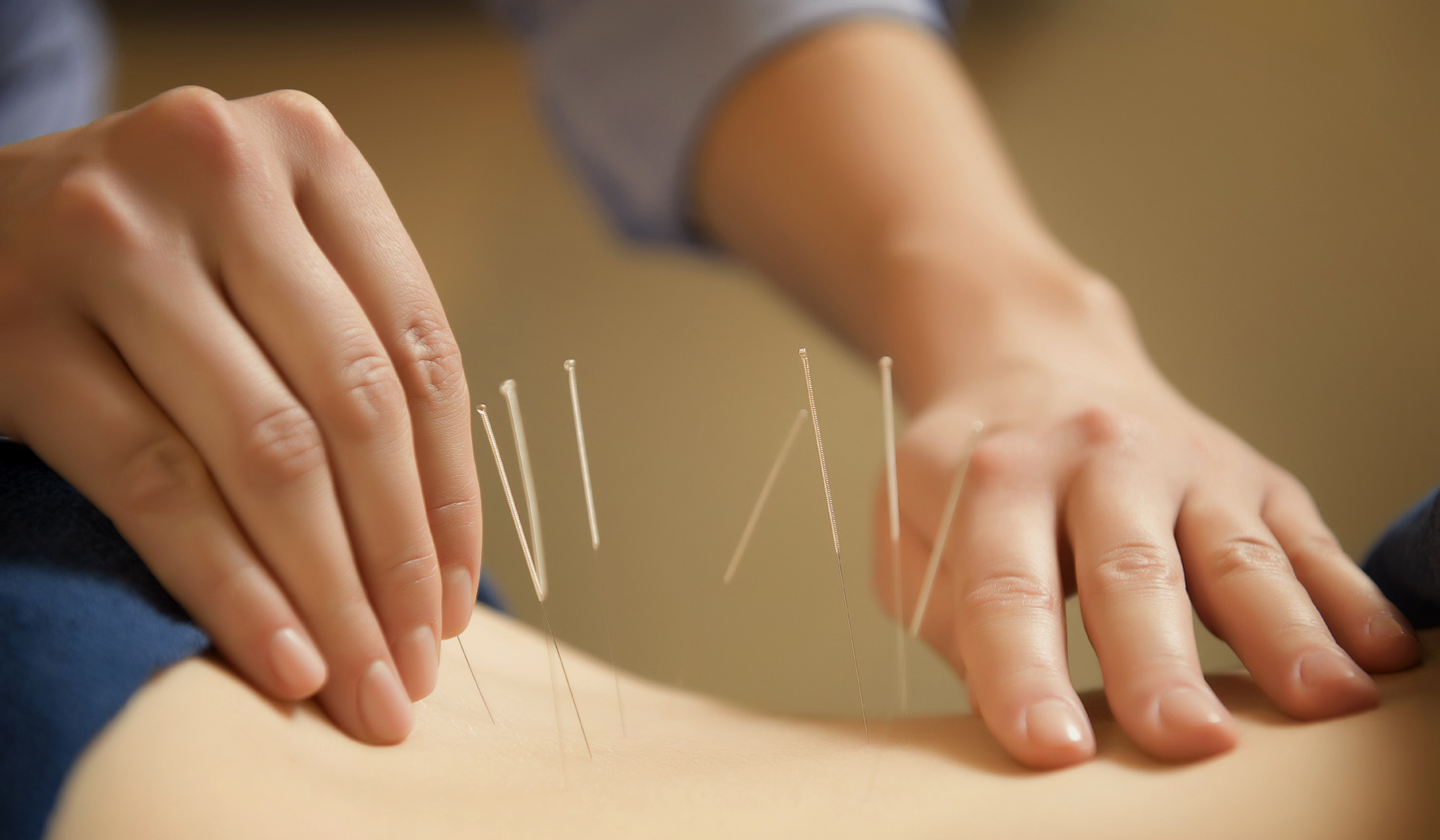
Acupuncture sounds scary, but there’s proof it could help — a lot.
If you’re new to holistic healing as a type of treatment, acupuncture can seem a bit terrifying. How could pressing needles into your skin possibly make you feel better? Doesn't that hurt?
Well, no, it’s definitely not the overtly painful procedure you may be imagining, and considering that it’s been studied and practiced for over 2,500 years, it seems acupuncture enthusiasts could seriously be onto something. Some people swear by acupuncture, citing it as a “miracle” to improving their quality of life because it’s said to be able to treat everything from depression and allergies to morning sickness and cramps.
If you listen to devotees, the prickly treatment sounds almost like a wonderful cure-all — but is it? Let’s take a closer look.
What is Acupuncture?
Acupuncture is an ancient Chinese medicine-based approach to treating a variety of conditions by triggering specific points on the skin with needles. Acupuncture is a minimally invasive method to stimulate nerve-rich areas of the skin surface in order to influence tissues, gland, organs, and various functions of the body.
Each acupuncture needle produces a tiny injury at the insertion site, and although it’s slight enough to cause little to no discomfort, it’s enough of a signal to let the body know it needs to respond. This response involves the stimulation of the immune system; promoting circulation to the area, wound healing, and pain modulation. Contemporary research on acupuncture relies mainly on this theory.
What’s The Philosophy Behind Acupuncture?
The Chinese philosophy behind acupuncture is a bit more complicated, as the ancient practice isn’t traditionally based in science and medicine. They believed that the human body was filled with and animated by an invisible life-giving force which they called ‘qi’ (pronounced ‘chee’) and when the qi was flowing well and going to all the right places, then a person would experience good mental and physical health. When the qi was flowing incorrectly (blocked or deficient) that would result in illness”.
The concept of qi isn’t too out there thinking of it as your body’s natural inner workings. Sometimes you’re more prone to illness when feeling stressed or anxious. When you’re relaxed and healthy, your body physically reflects that too. After all, your mood, mental health, and general well-being do affect your physical health. Thus, acupuncture aims to assist people in achieving balance, or qi, and, as a result, provide relief for many ailments.
What Does Acupuncture Do?
You may be interested in acupuncture for a variety of reasons, for example, I sought treatment for my chronic headaches and sinus pressure as there are countless conditions and symptoms that acupuncture has been said to help with. Here are just some of the many claims:
- Allergies
- Anxiety and depression
- Osteoarthritis
- Chronic pain, often in the neck, back, knees, and head
- Hypertension
- Insomnia
- Menstrual cramps and PMS
- Migraines
- Morning sickness
- Sprains
- Strokes
Some studies even suggest that acupuncture can help with cancer treatment and multiple sclerosis, however research for these conditions is limited and requires larger studies to confirm the benefits.
Incorporating Acupuncture Into Real Life
For now, if you have a condition that acupuncture does have scientific backing for, here’s what to expect from a session: an acupuncture session to last anywhere from 60 to 90 minutes, though most of this time may be spent discussing your symptoms and concerns with your practitioner sans needles. The actual treatment portion of acupuncture may last around 30 minutes, though you don’t necessarily have needles in your skin for that long!
In terms of results, it’s nearly impossible to say what one should expect, as everyone responds to and experiences acupuncture differently.
There is no universal response to acupuncture. Some people feel relaxed and maybe a little tired; others feel energized and ready for anything. Some people experience an improvement right away and for others, it can take several treatments before noticing a positive change.
The Most Common Response To Acupuncture
People feel happy and content, it’s hard to put into words but there’s a distinct balanced and harmonious feeling that acupuncture gives most people and it just feels good! You may also feel tired after a treatment and see changes in your eating, sleeping, or bowel habits, or experience no changes at all.
To arrange an appointment with our Medical Acupuncture Specialist, Dr. Jeffrey Chacko, please contact our office at (516) 419-4480 or (718) 215-1888.













